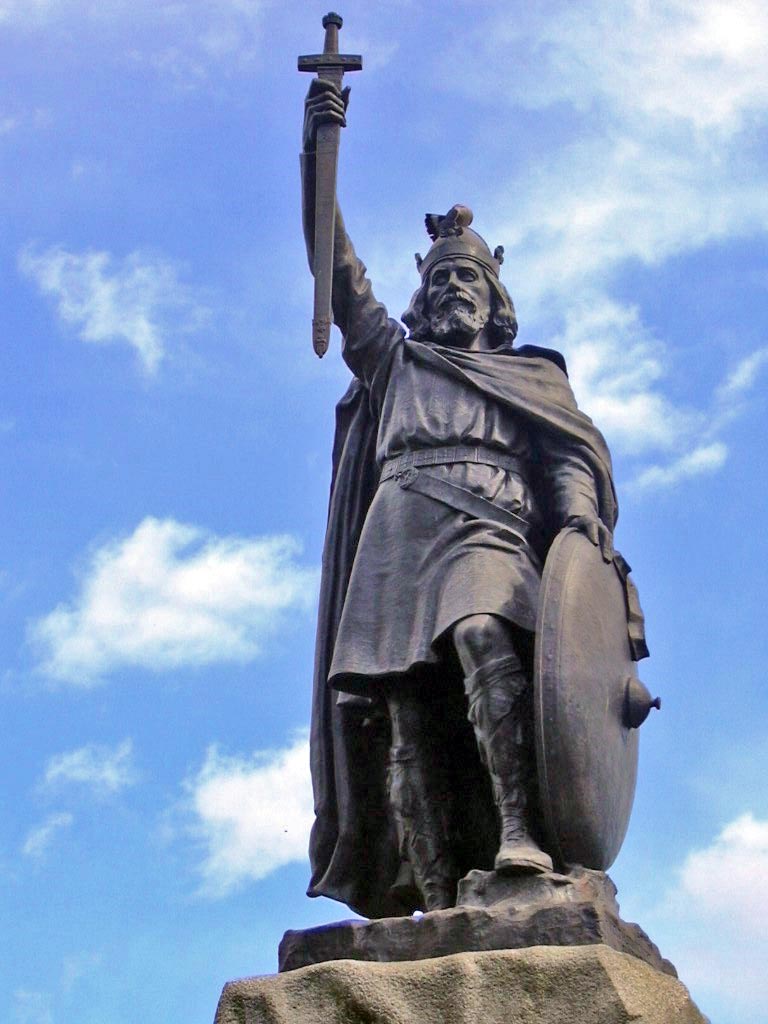The only British king ever to be called “the Great” Alfred was born in 849 into the royal family of Wessex which ruled parts of southern England. As the fourth son of King Aethelwulf, Alfred was not expected to ascend the throne; he appears to have been a sickly child with a penchant for learning that was uncommon in Anglo-Saxon noblemen of the time. Unfortunately for Wessex, the king and his three oldest sons Aethelbald, Aethelred and Aethelberht all died in a short span which coincided with the invasion of England by the Great Heathen Army, a Scandinavian alliance bent on conquering the island. Alfred became king at age 22 when most of the Anglo-Saxon kingdoms had been gobbled up by the Vikings. For seven years Alfred battled the invaders when he could and bribed them to stay away from Wessex when he had to, but in 878 a surprise winter attack by a Danish force compelled Alfred to flee and take refuge in the marsh country. Later that year Alfred gathered an army and smashed the Danes who were obliged to withdraw and agree to the conversion of their leadership to Christianity. Despite this victory, Alfred would spend the rest of his life battling one set of Vikings or another, slowly driving them north.
To enable the English to resist the invaders Alfred built a series of forts called burhs to which his people could resort with their property and cattle, thus denying the Vikings the ability to live off the land. He also divided the men of his kingdom in two, with each half taking turns serving in the army and working the land. Alfred is considered the father of the Royal Navy, having commissioned large ships to intercept the invaders at sea.
Alfred was more than just a successful warrior. He was a legal reformer, organizing an efficient system of taxation and maintenance of infrastructure. Anglo-Saxon England would become a model of medieval statecraft because of Alfred’s efforts. He was also committed to an active and effective religious life for his nation; like Charlemagne earlier in the century he saw church and state functioning together as a Christian commonwealth. Alfred refounded monasteries, took care in the appointment of bishops, imported foreign clergy, communicated regularly with the papacy and established schools. He took part in the translation of St Gregory’s book on pastoral care, Boethius’s Consolation of Philosophy and St Augustine’s Soliloquies. He ordered that the works of Gregory, Boethius and the History of the Church in England by the Venerable Bede be acquired by every English church.
Attempts by English kings to have Alfred canonized were not successful but he is honoured on this day by churches of the Anglican communion.
